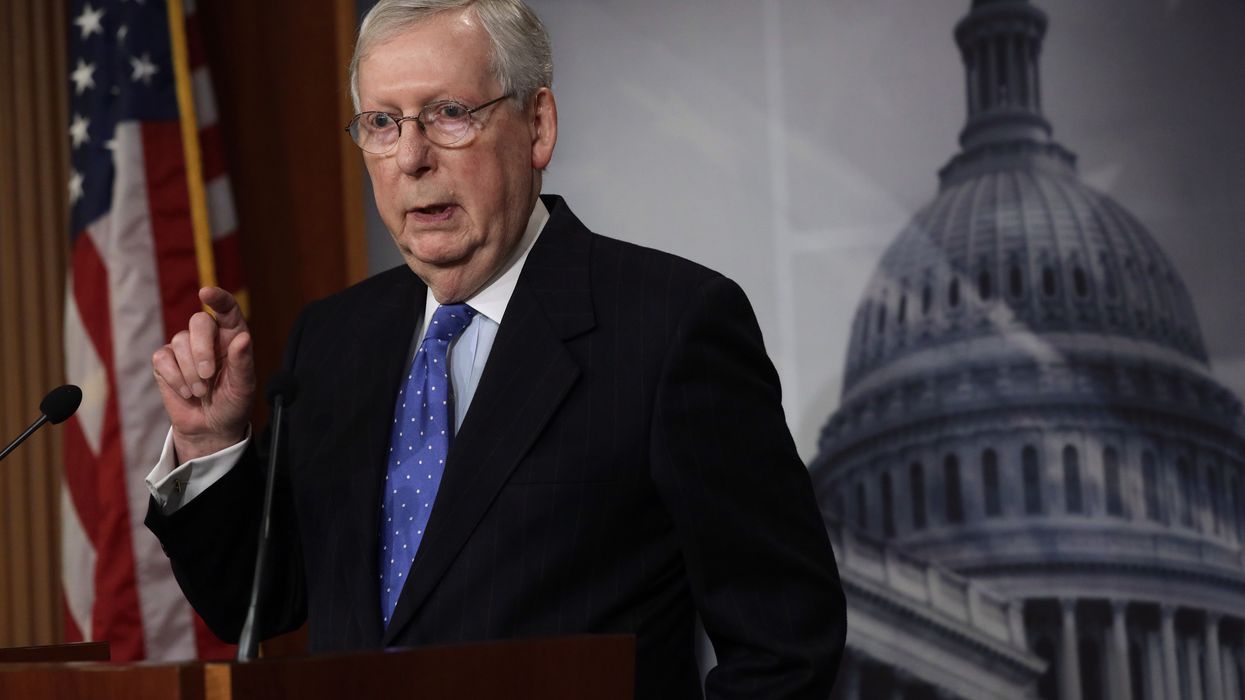As negotiations on a coronavirus economic stimulus package that could top $1 trillion intensified Wednesday, there was early bipartisan leadership agreement on this much:
When the bill is ready for a vote, the senators and House members will cast their ballots in person at the Capitol — just as they've always done for 231 years.
Senate Majority Leader Mitch McConnell has joined Speaker Nancy Pelosi in flatly rejecting the idea that democracy is best served during a pandemic by permitting the legislative branch to disappear from Washington, with lawmakers permitted to legislate with extreme social distancing — including voting for or against legislation by phone or online.
A growing group of members, from younger, tech-savvy House Democrats to a handful of self-quarantined Senate Republicans, have pressed for Congress to break with two centuries of tradition and allow remote decision-making at least until the spread of the novel coronavirus is under control.
They point to the government's warnings against large groups spending time together on aircraft or in the same rooms, saying their presence in Washington may soon imperil the collective health of Congress.
"If we're telling people to do their work from home when possible, teleconferencing as opposed to being physically present, what are we doing to achieve the same thing?" Democratic Whip Dick Durbin of Illinois said Tuesday on the Senate floor.
Later in the day, McConnnell emphatically rejected the argument that senators should be permitted to vote electronically from wherever they might be.
"We'll not be doing that," he said at a news conference where reporters' attendance was limited to reduce the risk of spreading the virus. He suggested that the period for votes, when the rules require senators to appear in the chamber for at least a few seconds to give a thumbs up or thumbs down, could be extended far beyond the customary 15 minutes to allow senators to appear in small groups rather than all at once.
"We will deal with the social distancing issue without fundamentally changing Senate rules," said McConnell, who is keeping the Senate in session until its work on the economic stimulus legislation is done.
The House is now in recess, with most members back in their home districts, until the measure is ready for debate. Before lawmakers left town, Pelosi made clear they would be recalled when it was time to legislate and that remote voting was not an option.
As a practical matter, there is no secure congressional technology to support such a switch. Beyond that, lawmakers would be subject to criticism that they were shirking their responsibilities to shape policies — especially in a time of crisis — and a disconnected legislative branch would risk ceding even more authority, power and limelight to President Trump.
Supporters say remote voting would reduce infections at a Capitol where the average age of House members is 58 and the average age of senators is 63, with 13 of them older than 75. They also argue that keeping members out of Washington now would allow them to model the behavior the government wants the rest of country to practice.
"While Congress is an institution with a proud history, we cannot stand on tradition if it puts lives — and our ability to be the voice of our constituents — at risk," says a letter signed by 45 House members and delivered to Pelosi last week.




















